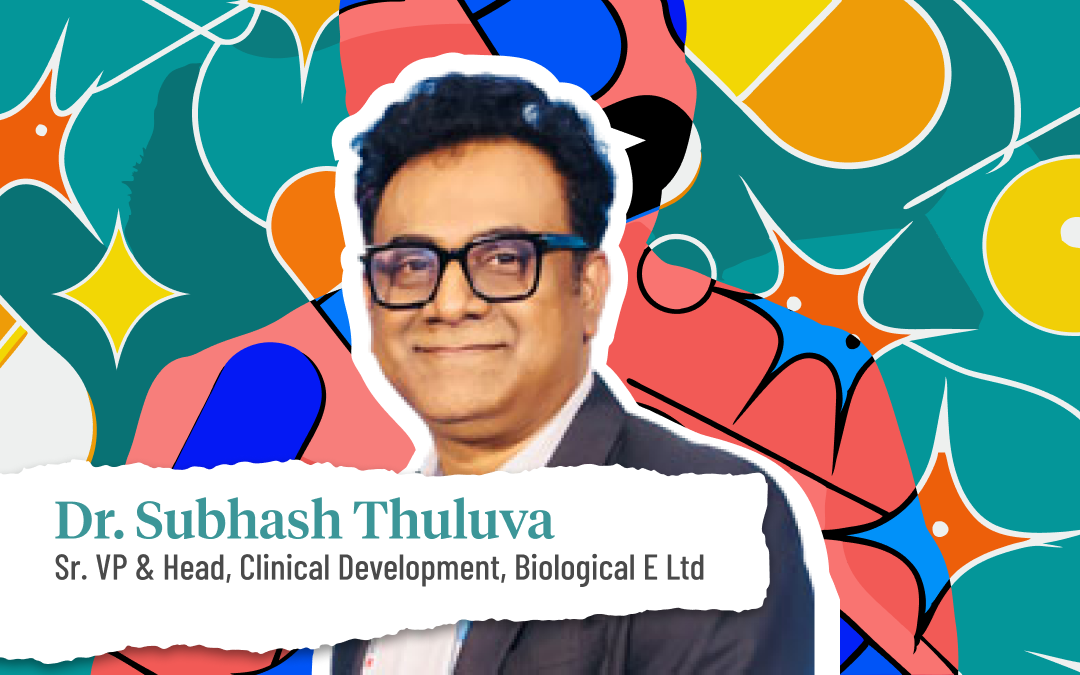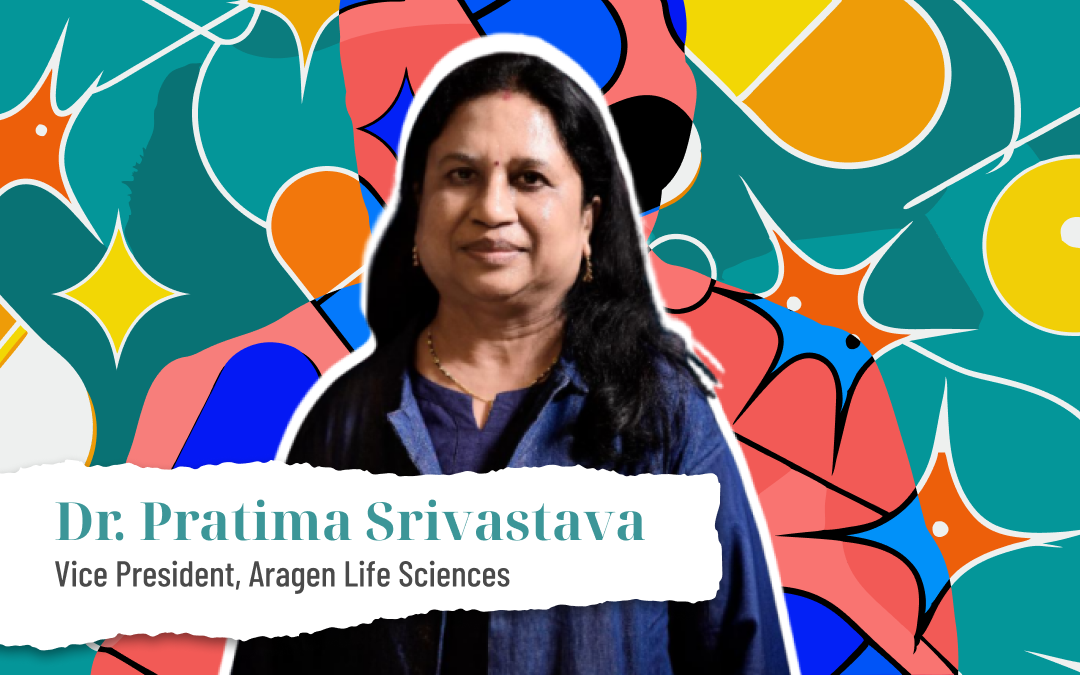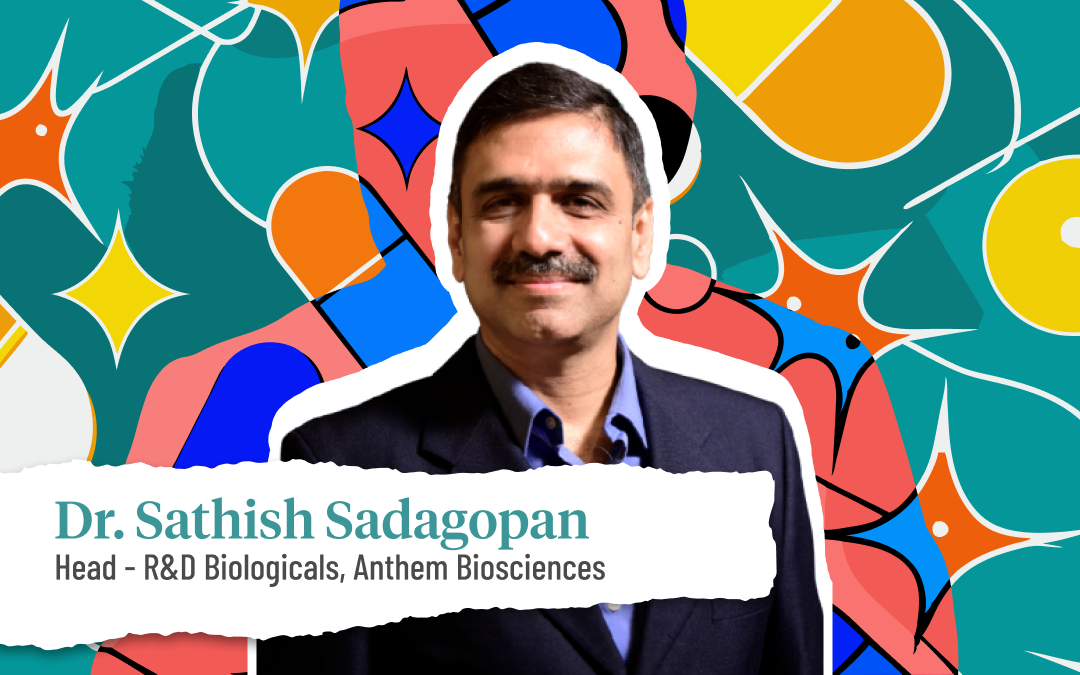QnA
Interview | August 26, 2024
ABOUT
Mr. Mannan Khambati, the Assistant Vice President of Biotech Manufacturing at Bharat Serums and Vaccines Limited, where he leads manufacturing operations for biologics. With extensive experience in biotechnology, he specializes in overseeing the production processes for vaccines and biopharmaceuticals, ensuring high standards of quality and compliance. Known for his expertise in scaling up manufacturing processes and optimizing production efficiency, Mr. Khambati plays a crucial role in driving the company's mission to deliver innovative and effective healthcare solutions to meet global needs.
Mr. Ravindra: Welcome, Mr. Mannan, to Pharma Now. I think we already started the interview before this interview. So I would really love to understand your journey. How did you become a manufacturing man? How did you become the manufacturing head for a renowned brand called BSV?
Mr. Mannan: Okay, so I think I will have to start from the beginning. Way back, I never had intentions to be in biology, let alone biotech. It was a family dream that I should become an engineer. I went to take admission in engineering, but I was late. So I took admission in microbiology, which was the next best line standing beside engineering. That's how I became part of microbiology. At that time, there was no biotech, way back in the '90s. I completed my master’s in ’96, so that was way back in ’91.
That's how the biology journey started. I liked it and thrived. I actually wanted to do my PhD, but during the first few months, I realized that if I wanted to complete my PhD, I would have to eventually go abroad. I got admission to CRI, Cancer Research Institute, TMC at that time. It was not possible to complete, and the stipend they were offering was Rs. 2500 versus the job I got, which offered me Rs. 6500. So it was three times more than the stipend. So, automatically, I switched because that was the need of the time. My first job was at Merind Limited, a Tata-owned company at that time, where we were doing fermentation of vitamin B12 using classical mutation and organisms.
The scale of operation was like 100,000 liters, so there were multiple bioreactors for that. Eventually, the company was taken over by Oakheart. Oakheart primarily decided that they would be investing more in the land part of it and were not interested in the process. At the same time, there was competition coming in from China, so we were not the leaders anymore. They decided to shut it down. I switched to USV and remained there for two years. Again, I was in between R&D and tech transfer. I was responsible for taking their molecules to scale up into manufacturing. They did not have a manufacturing facility at that time.
But the travelling from my place to that place was very tedious. Eventually, I got an opportunity with BSV in 2006. I joined BSV as an R&D person, I think as a senior scientist or maybe assistant manager, I don't remember. At that time, the purpose was to take the molecules which were developed. BSV had forayed into biotech very recently, maybe 2003-2004. They had developed a lab in the US that used to come to India for process development. My job was to take the process development, scale it up, and take it to manufacturing. But there was no manufacturing site again. So we did the scale-up at R&D and developed the manufacturing site based on my earlier experience handling higher volumes.
BSV already had a manufacturing site at Ambernath. We made a new building at Ambernath dedicated to biotech manufacturing. I was part of the designing, instrumentation purchase, selection, process development, process transfer, and everything else. For many years, I kept one leg in R&D and one in manufacturing. Eventually, in 2019, I shifted completely to manufacturing. Now I'm responsible for all the molecules that BSV develops for biotech in the company.
Mr. Ravindra: Wow. That's a breathtaking journey, I must say. So being, I can say, a scale-up man, right? You are always responsible for scaling up from R&D to production. What are the key challenges you always observe when you scale up to production?
Mr. Mannan: The main thing is R&D is kind of or was cash-rich. So whatever they use in biotech, especially, is something which is like a catalog product. Open the catalog and order it. It may be VW or Sigma, something which is best, which is available, molecular biology reagents, or whatever. Once you come to manufacturing, those ingredients are actually not available at that large scale or are not economical to use because importing, etc., is very tedious. There are certain chemicals where the lifespan is very short, and the material has to be shipped under special conditions like minus 20 degrees Celsius or something of that sort. Most of the time, it is really not possible.
My struggle was always to change this. We call it BOM, like a bill of material, right? So, the bill of material to make it more Indian, make it more user-friendly, to make it more cost-effective. So that the whole process cost can come down because of the raw material cost. That was the first challenge.
Second would be the understanding of manufacturing, of how manufacturing works, how CGMP works. R&D lacks CGMP concepts, and that's what manufacturing wants. In R&D, it's very easy to switch or tweak something that is going in the process. If something is not going right, you change it. But in manufacturing, you can't do that. There is a procedure to do that, and every change leads to some other change.
So it is very difficult. The good part was that I understood both sides and became a bridge between the two.
Mr. Ravindra: That's very interesting. So you talk about CGMP. Okay, so it's a very interesting jargon. So I want to know what exactly CGMP is?
Mr. Mannan: In simple words, current good manufacturing practices. Current means it is always changing. So you keep on upgrading yourself to the latest whatever is available. It basically means more on the compliance side of it. If you are following a particular pathway of regulatory guidances, then whatever the guidances are, ICH guidelines, European guidelines, American guidelines, whatever market you are targeting, according to that, you have to follow the guidelines. The CGMP is more on the side of how you will manufacture the product according to those guideline norms.
Why do we do it? Obviously for patient safety, and that's the primary thing. So whatever is latest available in terms of equipment, processes, procedures, everything has to be followed at all times. This keeps on updating, that's why it is the current GMP.
Mr. Ravindra: So, how do these CGMP ratings happen? Is there any body or any regulatory affair?
Mr. Mannan: Indian regulators like WHO and CDCO would do a pre-audit before you start manufacturing to see whether your facility complies with all the norms which are written as per schedule N. If you go to Europe, they will have their own CGMP guidelines and then they will come and inspect according to their requirements. For example, the environment which is there, the material that is being used—all that needs to be clean, deciphered as per pharmacological, everything needs to be tested before use, and so on. The procedure is that CGMP involves a lot of things other than the process.
Mr. Ravindra: I think a lot of sustainability buzz is going on in the industry. Can you shed some light on how you guys are compliant with the ESG goals?
Mr. Mannan: I think sustainability is something where the definition differs depending upon which sector you belong to. So a sector is not in terms of pharma, but in pharma, either you are on the side of finance, sales, manufacturing, or R&D.
For a finance commerce guy, sustainability means that the business continuity has to be there. So that is what I have to sustain. How do I sustain? By doing cost-cutting, by improving my yields, or so on. When it comes to manufacturing, then manufacturing normally thinks sustainability means I have to take care of the environment, the processes, how much water am I using, how much electricity am I using, what are the plastic waste we are producing, what are the ETP effluent things going on.
So that's how the definition keeps changing between sectors within the industry. Sustainability is definitely the way forward. A good part is that even if you are a part of the MIDC area, then MIDC controls are also pretty high. For example, the amount of plastic that we use now has increased because more or less, we are using everything as disposable. When we talk about disposable plastic bags that we use at home, here also we are using plastic bags. They are used for single-use fermenters or single-use mixers, a lot of plastic. But the amount of plastic that we use and the amount of plastic which we give out has to be matched. It has to be numbered and a certain number has to be committed to the municipality, and then it can be done.
So you cannot go wrong in that. It's a part of compliance now.
Mr. Ravindra: Very interesting. So coming back to the manufacturing part, in terms of technology, what new technological innovations are we implementing in manufacturing right now?
Mr. Mannan: As I said, part of sustainability, you have to use single-use. Why single-use? Because it helps in terms of reducing water usage and electricity usage. If I have a process lasting for maybe 5 days, 10 days, and I have to repeat that process, every time the process change happens, then you have to do the cleaning. But when you're using disposables, you don't have to do that part. So that is one.
Automation is second. Manual intervention has to be reduced so that the risk goes down. Automatically, when automation comes in, AI, ML, generative AI, everything also comes in together. We may be indirectly using it without knowing it, but it is there somewhere in the software. It is an interface for us where we can just see the graphical representation. But that usability and person knowability is definitely increasing. It's a buzzword now. Everybody's talking about it. And of course, we are googling it every time in Germany and ChatGPT. But definitely using it more and more on the process side also.
Mr. Ravindra: There is another buzzword, Industry 4.0. Industry? 4.0. Okay. Of course, the integrated environment and IoT and all those things. Right. What is your take on it?
Mr. Mannan: So again, it was always there because once we started using SCADA, once we started integrating machines, the machines started talking to each other even if they were manufactured by two different companies. The software has to integrate, and we have digital DMR, so all these things had to happen. IoT would be a part of it because sometimes even the servicing has to be done online, the guys don't come, so we have to give them access to the systems. Then your IT is rigid, okay, I will have my antivirus loaded in your software, but if the antivirus is there, my software doesn't work. So then there is always a conflict. Things are improving over there also.
Mr. Ravindra: That’s an interesting take. I really wanted to have one piece of advice for the youngsters who want to get into pharma manufacturing, who want to get into the pharma industry altogether. What would be that one piece of advice you would like to give?
Mr. Mannan: Giving one piece of advice is difficult because there are so many things. But definitely, I think more or less what I see missing nowadays is integrity. Especially, everybody has a mindset that I want to join a company and leave within maybe one and a half to two years. If you come with that mindset, it's very difficult to teach and very difficult to learn. So that integrity is definitely required.

FT - Dr. Subhash Thuluva

FT - Ms. Rajni Jha

FT - Dr. Pratima Srivastava

FT - Dr. Sathish Sadagopan

FT - Dr. Subhash Thuluva
Dr. Subhash Thuluva, Senior VP at Biological E, shares his 25-year journey in clinical development, ...

FT - Ms. Rajni Jha
Ms. Rajni Jha, a seasoned pharmaceutical specialist, shares her journey from the lab to becoming a l...

FT - Dr. Pratima Srivastava
Dr. Pratima Srivastava, Vice President at Aragen, shares her remarkable journey from aspiring scient...

FT - Dr. Sathish Sadagopan
Dr. Sathish Sadagopan, Senior GM at Anthem Biosciences, shares his journey from academia to leading ...